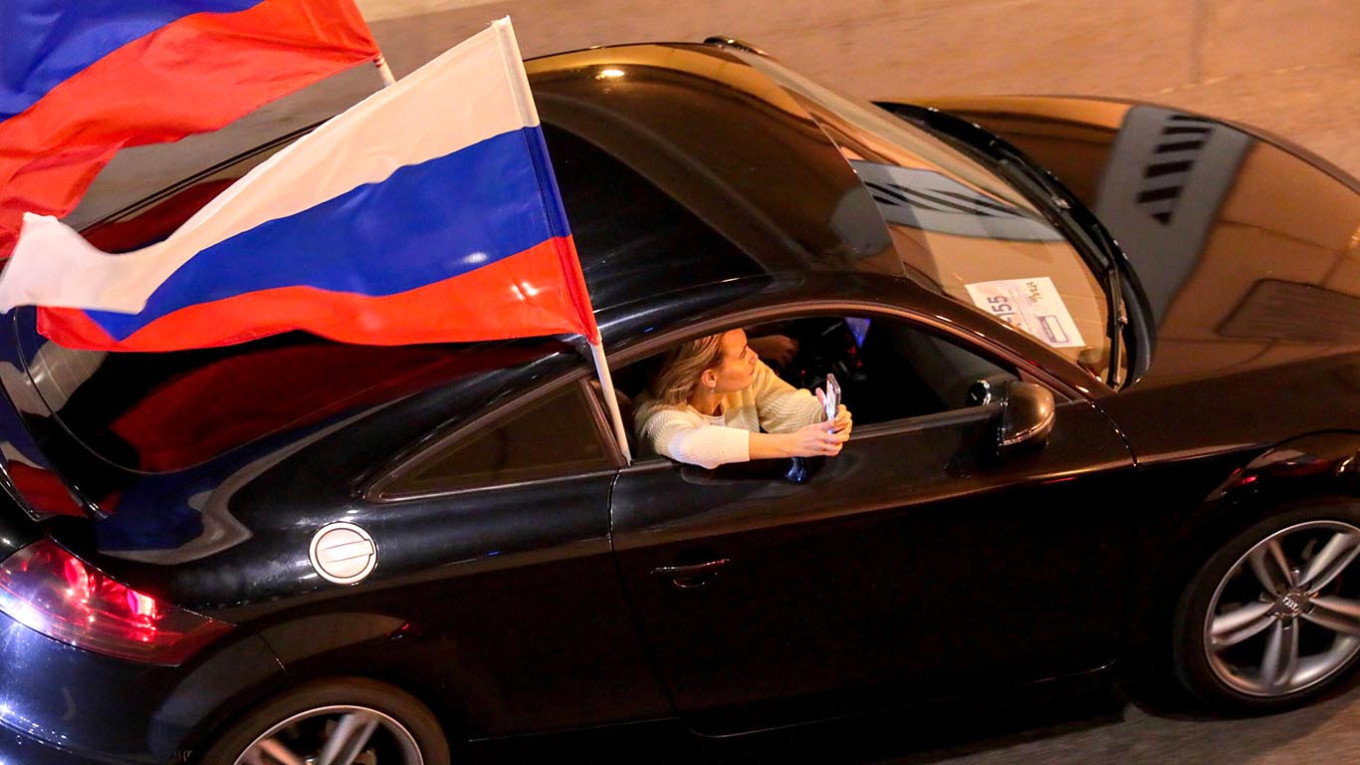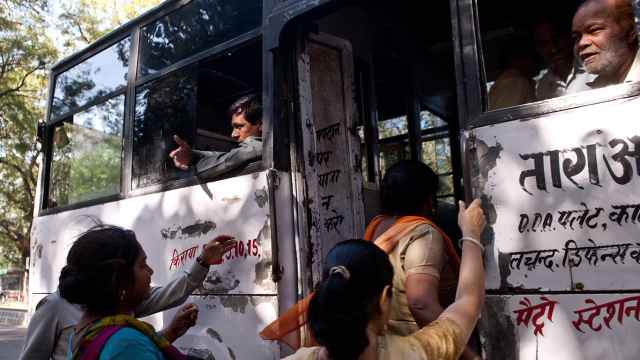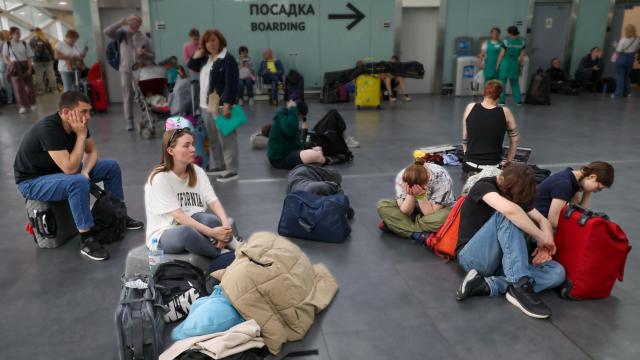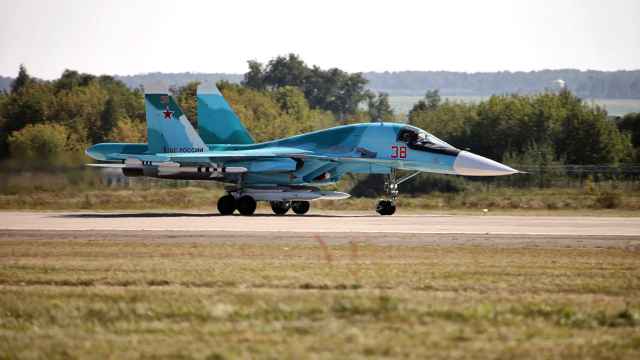Hello and welcome to the latest edition of The Moscow Times’ Regions Calling newsletter, where our reporters examine key trends and events shaping life and politics in Russia’s regions.
This week, MT’s editor-in-chief Samantha Berkhead and reporter Pyotr Kozlov examine how Russian regional elites’ penchant for educating their children in the West never really ended after the invasion of Ukraine.
Subscribe here so you never miss an issue.
Last week, the exiled artist and writer Nastya Rodionova revealed her findings that Liza Rudnova (Krivonogikh), Putin’s alleged extramarital daughter, lives in Paris and works at a gallery showcasing Russian and Ukrainian anti-war artists.
But it is worth remembering that Krivonogikh is far from a unique case.
Despite Western capitals’ vows to close their doors to the regime and its beneficiaries as punishment for the invasion of Ukraine, there are countless federal, regional and municipal officials across Russia whose family members continue to live and study in the West.
One Russian government official told The Moscow Times that after the full-scale invasion of Ukraine, he asked his son, who was studying in the U.K. at the time, to come back to Russia out of fear that he would face repression for being a Russian citizen. However, the official admitted that he still wished his son could complete his education in the West.
Another official said she sent her daughter to study at a school in the European Union. The daughter later enrolled in university in that country and now refuses to return to Russia.
“She’s 25 now and has spent half her life outside Russia, living in the West. And she no longer wants to come back home. It seems, as painful as it is for me, I have to accept that her ‘home’ is no longer here but there,” the official said.
Both officials spoke on condition of anonymity.
While officials go to great lengths to keep these stories under wraps, especially after the invasion of Ukraine put renewed scrutiny on their families’ whereabouts, there are plenty of examples that we know about.
The sons of Vladimir Yakunin, the former head of state-owned Russian Railways and a former Putin ally and KGB officer, live and do business abroad. At least one of them is a British citizen.
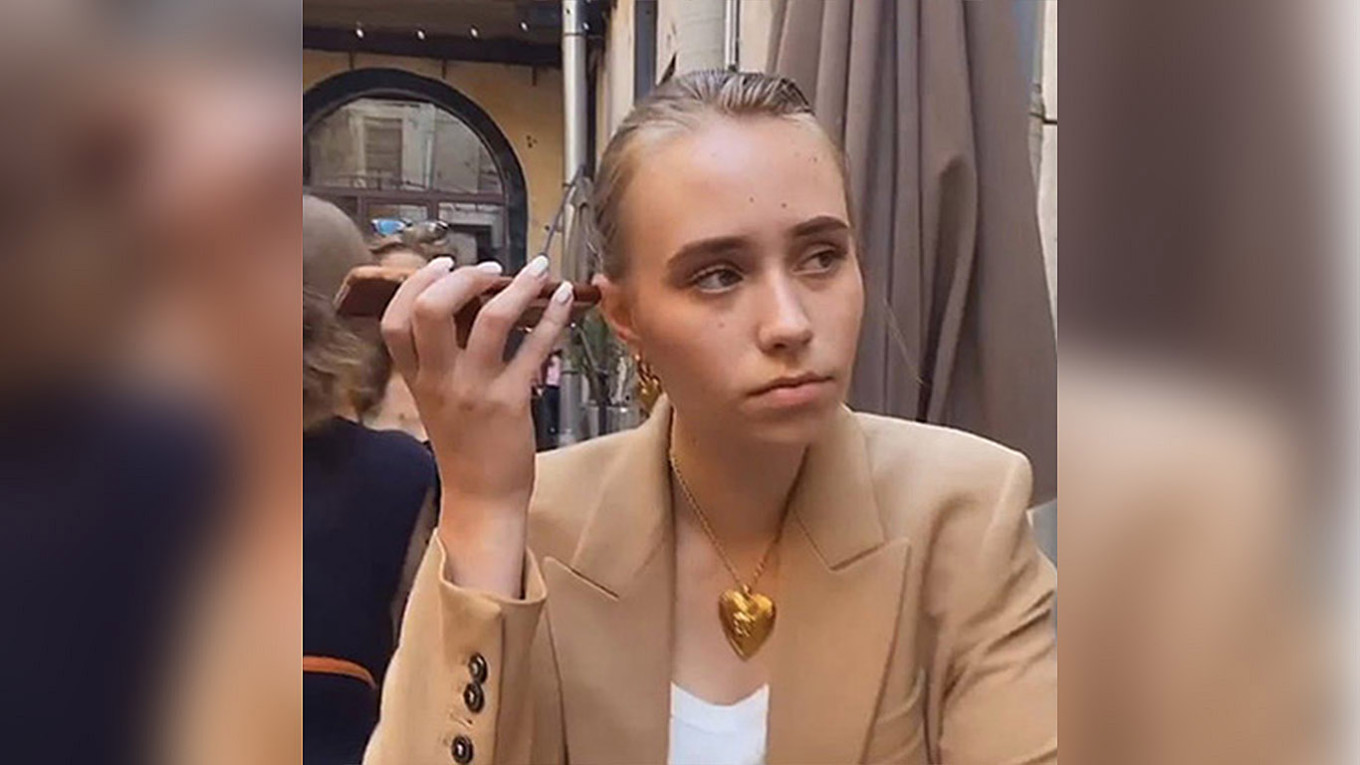
Svetlana Gradvol, the eldest child of Bashkortostan’s head Radiy Khabirov, has lived in Austria for many years. A graduate of the Vienna University of Economics and Business, Gradvol is married to an Austrian finance professional and owns a photo studio in the Austrian capital, according to information obtained by regional news outlet Prufy.
Gradvol’s younger sister, Rita Khabirova, is also based abroad. Having graduated from King’s College London in 2020, she still lives in London and works in the marketing department of the skincare brand Skin + Me, according to an investigation by Navalny LIVE.
A 2023 investigation revealed that the daughter of Alexei Zhuravlev, a notoriously hawkish State Duma deputy from Voronezh, lives in Austria with her Austrian spouse and does not support the war.
And Yulia Richard, the daughter of the Leningrad region’s sanctioned Governor Alexander Drozdenko, has lived in France for years, owning businesses and residences there with her French husband.
If these relatives were ordinary people not born into families with status and wealth (which is, in many cases, acquired through corruption), their lives would look very different.
For one, the quality of education in an average school in Russia’s regions is quite different than what you’d get at a private school abroad.
A recent study by Russian economists Ilya Prakhov and Alan Gadzaonov concluded that high school graduates in Russian regions have lower average State Exam scores than their peers in Moscow and St. Petersburg. This points to grave disparities in the overall quality of school education and in the availability of qualified tutors.
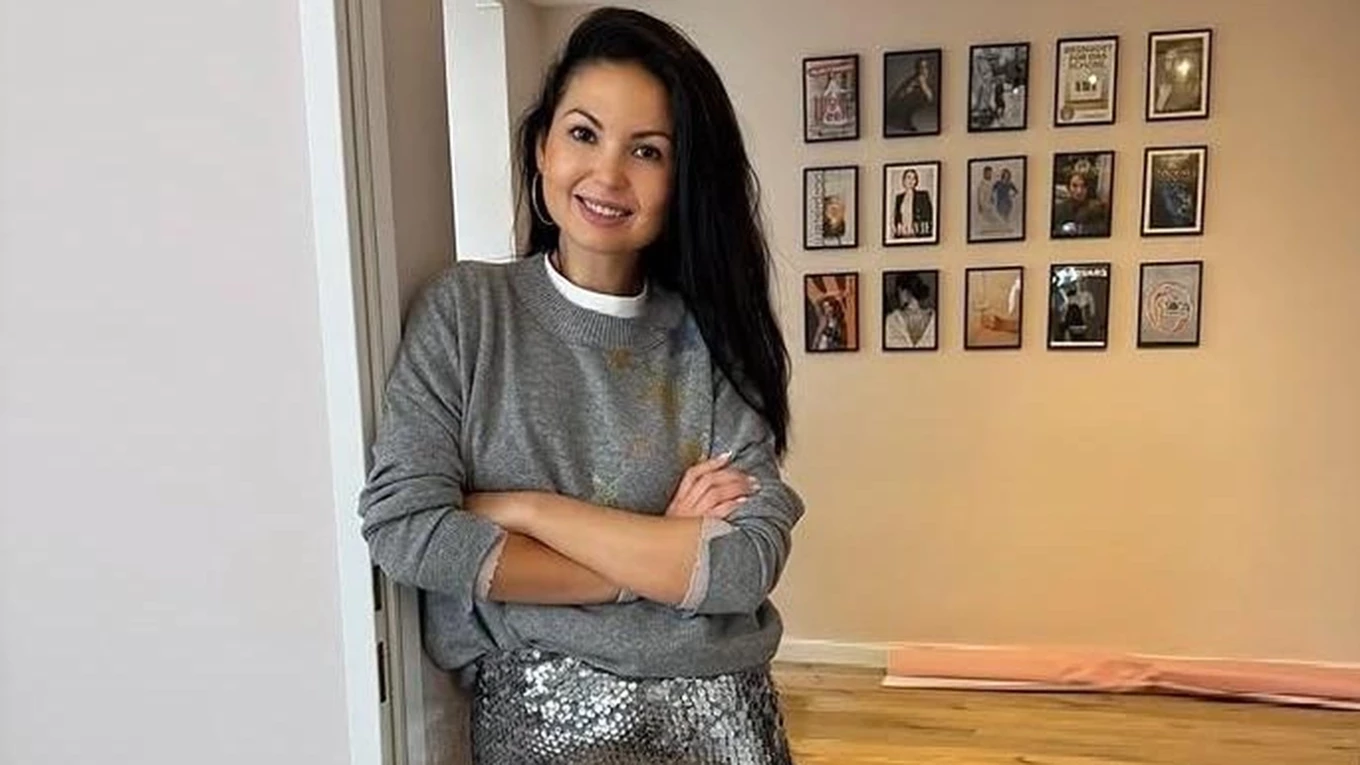
Even high-scoring school graduates from Russian regions are more likely to enroll in lower-ranked and lesser-known universities due to a lack of knowledge about the higher education system or financial barriers.
“In St. Petersburg, there are a few good schools you can get into through competitive exams … and of course, there are way more extracurricular programs than at schools in the regions,” a colleague from St. Petersburg said. We’ve withheld her name for safety reasons.
“But an average neighborhood school on the outskirts is likely to be terrible. I went to one like that in the early 2000s. The teachers were constantly yelling at us, and instead of biology lessons, we sang war songs. Just attending that kind of school is traumatic in itself.”
Another acquaintance, who went to a rural school in a suburb of Voronezh, recounted a similar experience.
“We had a pretty cringe school. There was a church nearby, and a priest often came to visit us and told us crazy anti-scientific stories about telegony [a debunked theory of heredity] or about how water has memory,” he told us. “In the history of our school, there were only a few people who went [on to study in] Moscow, and the teachers held them up as examples to everyone. Most of my classmates left after 9th grade to go to technical colleges. And after 11th grade, only a few went to Voronezh State University, which was generally considered a success by our school's standards.”
And that’s not to mention matters of basic infrastructure. At least 3,900 schools in Russia are not equipped with a sewage system, according to data analytics project To Be Precise. In the republics of Sakha and Dagestan, sewage systems are absent from as many as 41% of all school buildings; in Tyva, that is true for more than half of all schools.
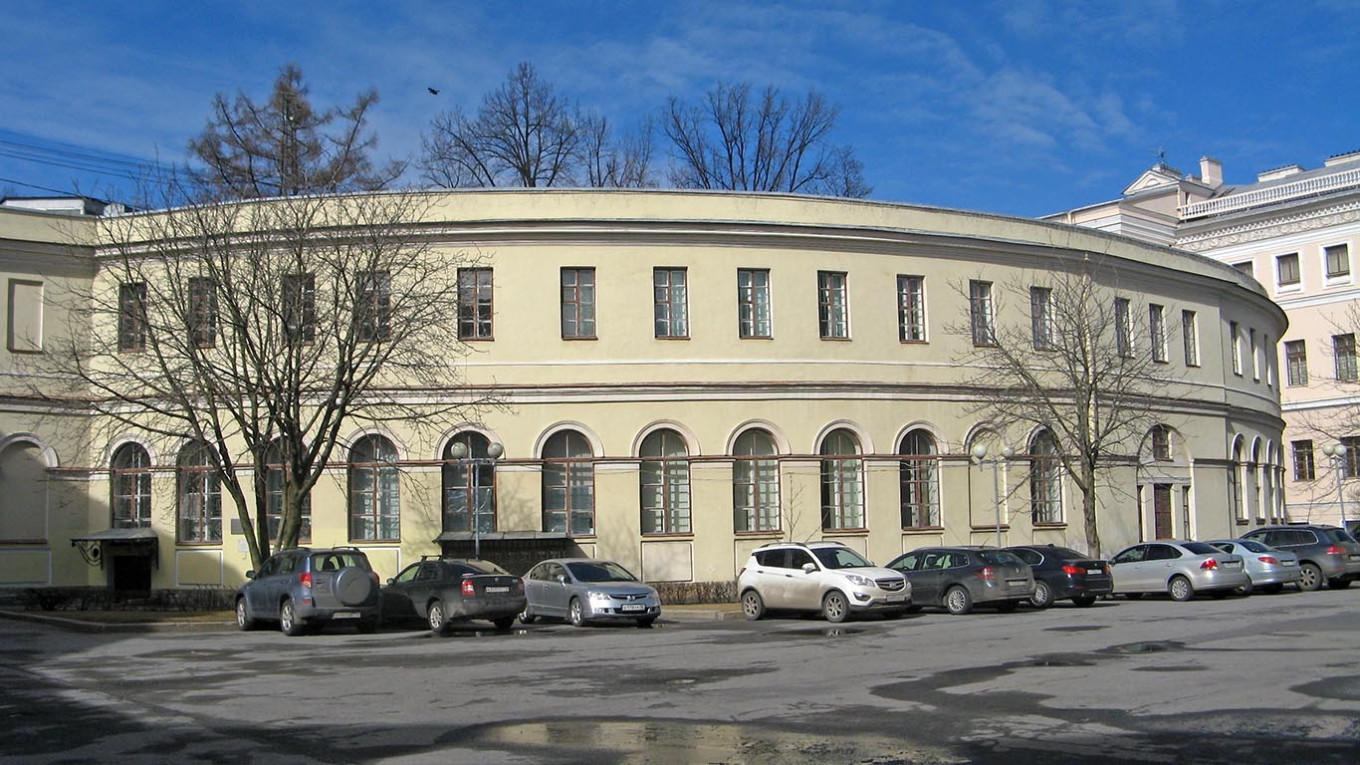
What do we do with this information?
Since the invasion of Ukraine, Russian lawmakers have repeatedly tried to ban politicians and officials’ children from studying abroad, a gesture likely aimed at convincing the public that the elites are standing with the Russian people in wartime.
“If you want to change the world, start with yourself. Deputies, mayors and officials not only shouldn’t have foreign citizenship or property abroad — their relatives, including their children, shouldn’t be living or studying abroad either,” State Duma Speaker Vyacheslav Volodin said in 2023.
Yet the fact that such a law has still not been passed speaks volumes about how Russia’s elites truly feel about foreign education for their children.
In the West, there has been a desire by many to seek collective responsibility for the atrocities being carried out by the Russian military, including by sanctioning the family members of the country’s leadership.
But as you move from the families of top officials to those of regional and municipal authorities, the ethical picture gets murkier.
Where do you draw the line between “Good Russians” and the rest? Should children share the guilt for their parents’ complicity in the war and the regime’s repressions? How much privacy are they entitled to as people who didn’t choose to be public figures?
These are the questions that European, British and American policymakers must grapple with.
This doesn’t even take into account the fact that banning Russian officials’ families en masse would play into the Kremlin’s hands, furthering the narrative that Russian citizens are discriminated against in the West.
As journalists, it’s not our job to tell you what your opinion should be one way or the other.
However, one thing is certain: If the families of Russia’s ruling classes are living their best lives in the West, that does somewhat decrease the odds of a nuclear apocalypse.
There’s always a silver lining, right?
Leyla Latypova contributed reporting.
A Message from The Moscow Times:
Dear readers,
We are facing unprecedented challenges. Russia's Prosecutor General's Office has designated The Moscow Times as an "undesirable" organization, criminalizing our work and putting our staff at risk of prosecution. This follows our earlier unjust labeling as a "foreign agent."
These actions are direct attempts to silence independent journalism in Russia. The authorities claim our work "discredits the decisions of the Russian leadership." We see things differently: we strive to provide accurate, unbiased reporting on Russia.
We, the journalists of The Moscow Times, refuse to be silenced. But to continue our work, we need your help.
Your support, no matter how small, makes a world of difference. If you can, please support us monthly starting from just $2. It's quick to set up, and every contribution makes a significant impact.
By supporting The Moscow Times, you're defending open, independent journalism in the face of repression. Thank you for standing with us.
Remind me later.




